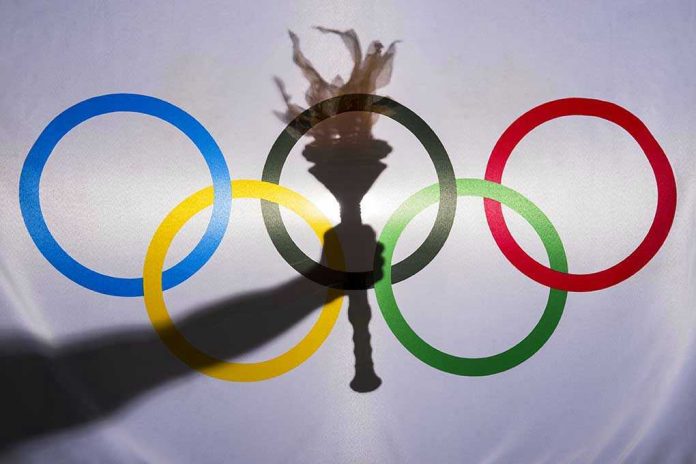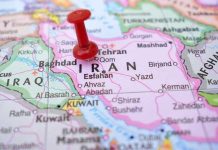
In 2028, athletes and spectators from all over the globe will flock to none other than America’s sunny Los Angeles, California for The Olympics — which is one giant logistical puzzle that requires oh so much to go right in order to go smoothly. Who will head that massive job, you ask? Well, Trump just shocked us all and volunteered himself!
Story Highlights
- President Trump signed an executive order making himself chair of the 2028 LA Olympics federal task force, breaking with tradition.
- The administration committed $1 billion to security and threatened military deployment, intensifying federal-local tensions in California.
- Local officials and organizers face mounting pressure as federal oversight expands, raising questions about states’ rights and civil liberties.
- The Olympics are being positioned as a showcase for American exceptionalism amid growing concern over government overreach.
Trump’s Direct Leadership Sets New Federal Precedent
On August 5, 2025, President Donald Trump signed an executive order establishing the White House Task Force for the 2028 Summer Olympics in Los Angeles. Unlike any previous president, Trump appointed himself as chair—an active, hands-on role instead of the customary ceremonial position. The task force, with Vice President JD Vance as vice chair, is charged with overseeing federal coordination for security, transportation, visa processing, and interagency cooperation. This bold step signals a shift toward robust executive involvement, aiming to ensure that the Games project American strength and economic opportunity while raising concerns about the balance of power between Washington and local governments.
The move follows a recent history of federal-local friction. In June 2025, Trump ordered the deployment of National Guard and Marines to Los Angeles, citing immigration enforcement needs—an action that escalated tensions with California Governor Gavin Newsom and LA Mayor Karen Bass. The city’s designation as a “national special security event” further empowered federal agencies, particularly the Secret Service, to lead security operations. These developments depart sharply from the approach seen in past U.S. Olympics, where presidents maintained a symbolic presence and local authorities took the lead on logistics and safety.
Federal Power and State Resistance: A Brewing Showdown
The creation of the task force and the $1 billion security allocation underscore the Trump administration’s intent to assert firm federal control. Trump has threatened to use military force if necessary to safeguard the Games, stating, “We’ll do anything necessary to keep the Olympics safe, including using our National Guard or military.” This confrontational stance has left local officials wary of what they view as federal overreach and potential militarization of their communities. Their formal responses remain pending, but the friction is palpable, with concerns about civil liberties and local autonomy echoing through city hall and the state capitol. Meanwhile, the LA28 Organizing Committee, led by Casey Wasserman, finds itself navigating a delicate path between federal demands and community interests.
The situation mirrors broader national debates over the limits of federal authority, particularly in areas of immigration enforcement and public safety. The deployment of federal forces in Los Angeles is emblematic of the administration’s broader strategy to pressure states and cities into compliance on contested issues, fueling fears among critics of constitutional erosion and unchecked executive power.
Security, Economy, and the Olympics as National Stage
The task force’s mandate covers more than just policing. It is responsible for streamlining visa and credentialing processes for athletes, visitors, and officials—key operational challenges for any Games. The $1 billion funding package is designed to enhance security infrastructure, technology, and personnel, with the hope of ensuring a safe and seamless event. Proponents argue this level of oversight is necessary given global threats and the opportunity to showcase American exceptionalism. Supporters also point to potential economic benefits for Los Angeles, anticipating a boost in tourism and local business activity.
However, the heavy federal footprint and talk of military involvement have alarmed civil liberties advocates and local leaders, who warn that such measures could undermine public trust and tarnish the Games’ image. There are concerns about disruptions to daily life, increased surveillance, and the precedent this may set for future large-scale events. Still, supporters maintain that the stakes—America’s security and reputation—justify a muscular approach and strong leadership at the highest level.
Expert Perspectives and the Road Ahead
Olympics organizers have publicly welcomed federal support, emphasizing the need for partnership to deliver a successful event. Security experts highlight the enormous complexity of protecting the Games, insisting that close coordination between federal, state, and local agencies is essential. Yet, political scientists and public administration scholars question the wisdom of a president chairing such a task force, warning of potential executive overreach and the erosion of traditional federalism. They caution that unresolved friction between Washington and local authorities could hinder effective planning and public confidence, especially if aggressive enforcement or militarization takes center stage.
As preparations for the 2028 Olympics accelerate, the nation watches closely. The effectiveness of Trump’s task force, the response from California leaders, and the willingness of federal and local agencies to cooperate will determine not only the safety and success of the Games but also the future contours of American governance and the defense of constitutional values. For conservatives wary of government overreach, the unfolding situation in Los Angeles is both a test and a warning—underscoring the need for vigilance whenever executive power expands, even under the banner of national pride.




